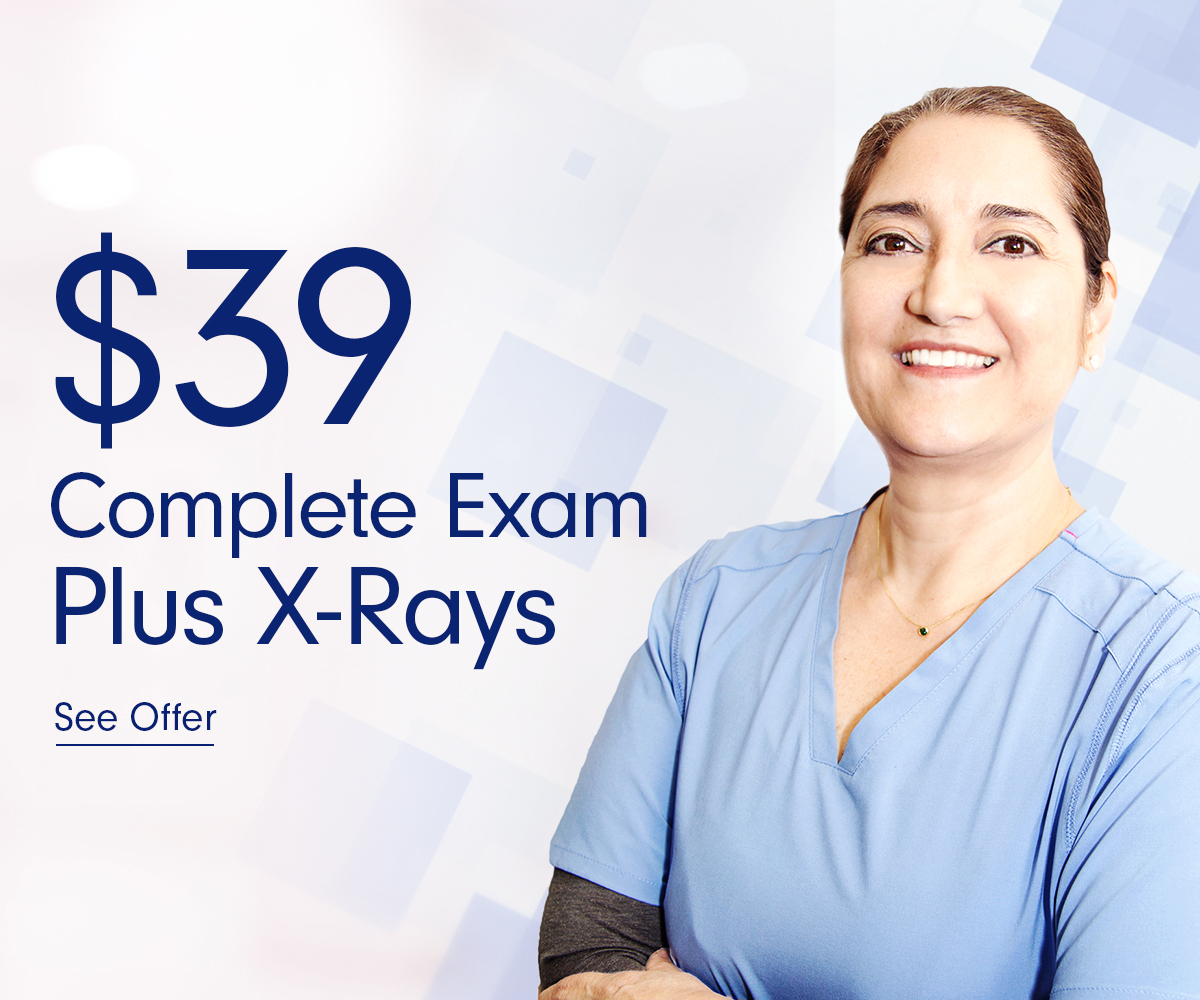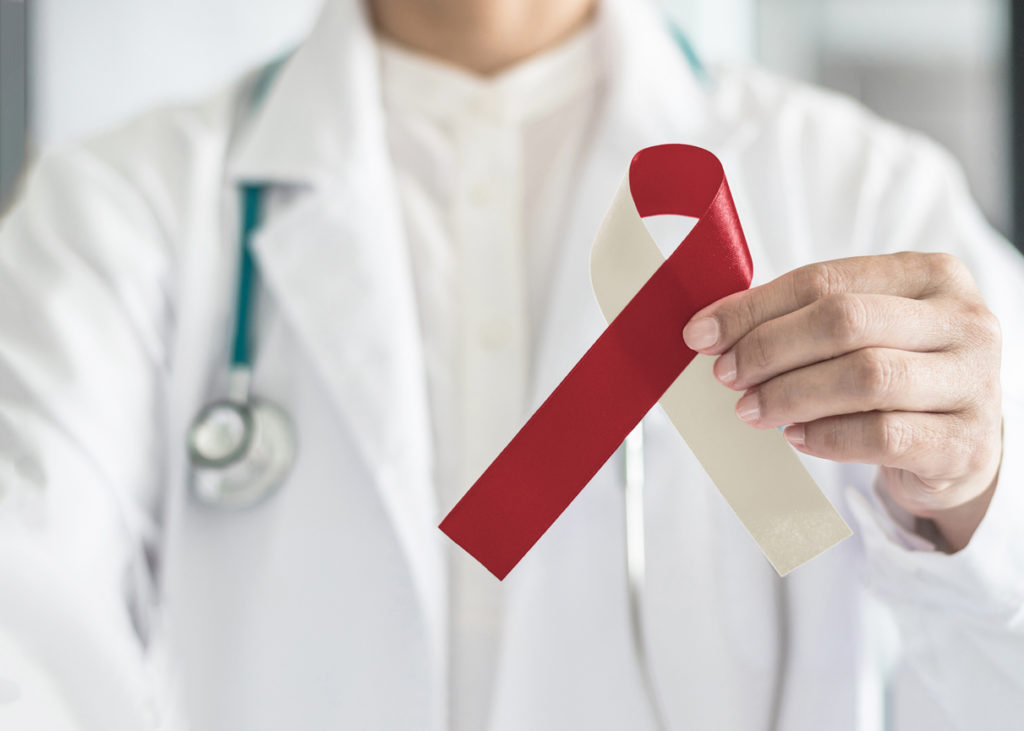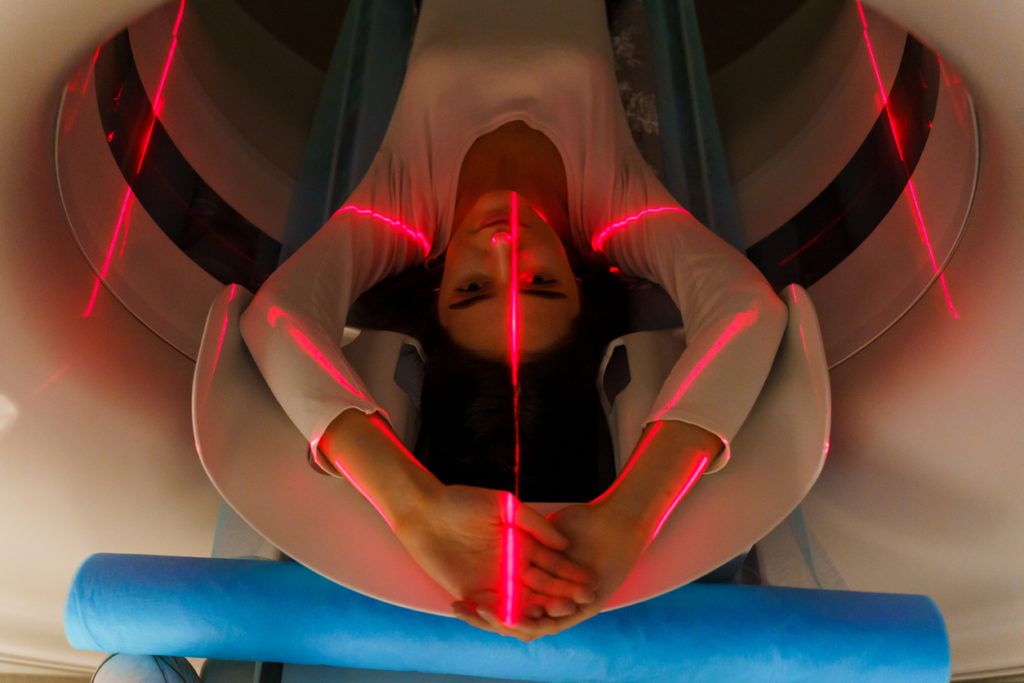When talking about oral health, we often think of ways to avoid tooth decay, gum disease and infections. And we all know we should brush, floss and see our dentist for our exams, x-rays and teeth cleanings. However, oral cancer is a concern that isn’t discussed as often. Here’s what you should know about oral cancer, explained by our dental professionals.
What Is Oral Cancer?
Oral cancer is a condition that occurs when cells grow uncontrollably and damage the tissue. It can affect the cheeks, tongue, the floor of the mouth, throat and sinuses. It is vital for you to get this condition treated as soon as possible because it can be life-threatening. The sooner it is caught, the better your chances of successful treatment.
Common Symptoms of Oral Cancer
Although symptoms of oral cancer may vary from patient to patient based on where the cancerous cells are located, there are common signs that occur. Here are some early signs of oral cancer.
- Swelling or lumps in the mouth. Often, the first symptom people notice is a lump or sore in their mouth. However, a sore is not always an indication of oral cancer.
- Sores in or around the mouth. You should be concerned if you have a sore that is bleeding, is getting worse or does not go away.
- Patches of discoloration or different textures. Red, white, spotted or rough patches in the mouth could be an indication of oral cancer.
- Unexplained numbness. You may also notice a loss of feeling in your neck, mouth or face.
- Changes in functionality. Oral cancer can cause difficulty with chewing, speaking, moving the tongue or swallowing.
Other signs of oral cancer may include sudden weight loss, a change in the way your dentures fit, ear pain, a voice change or chronic sore throat. If you’re experiencing any of these symptoms, it’s always best to alert your dentist or health professional right away.
Who Is Most At Risk for Oral Cancer?
Anyone can develop oral cancer, but this condition affects more men than women, according to the American Dental Association [1]. They also found that oral cancer is most common in people between the ages of 55 and 64. Your age and sex are two factors that you are not able to control. However, there are some lifestyle habits that can put you at higher risk for oral cancer.
- Use of Tobacco. Oral cancer is more common among people who use tobacco products. It doesn’t matter whether you smoke cigarettes or chew tobacco. Both of those habits can make you more susceptible to developing oral cancer.
- Excessive Alcohol Use. Excessive alcohol intake is another risk factor for oral cancer. If you consume alcohol, then you don’t want to have more than two per day. Studies have shown that four or more drinks per day can increase the risk of oral cancer.
- Poor Diet. Your diet is another risk factor. You are at a higher risk for oral cancer if your diet is low in fruits and vegetables and high in sugar and fat.
- Sun Exposure. Prolonged and unprotected sun exposure not only increases the risk of skin cancer, but it can also make you more susceptible to oral cancer.
- Human Papillomavirus (HPV). According to the Oral Cancer Foundation [2], some forms of oral cancer have been linked to HPV, the most common sexually transmitted infection in the U.S.
What Is an Oral Cancer Screening?
Your dentist or primary care doctor can help catch and diagnose oral cancer early through oral cancer screenings. They use special tests to detect abnormalities in and around your mouth. If they see anything suspicious, further tests may be ordered to confirm the diagnosis.
During an oral cancer screening, your dentist will be testing for abnormal or squamous cells. It involves a thorough visual examination of the mouth to look for white patches or other discolorations that could be a sign of early oral cancer. They’ll also look for sores, irritation, loose teeth or bleeding.
Your dental professional will then use a special light to screen for abnormalities. This oral cancer screening device will make normal tissue appear lighter while cancerous cells appear darker. Dental x-rays also help with catching oral cancer in areas that cannot be seen by just looking in the mouth.
Common Treatments for Oral Cancer
The type of treatment patients should get depends on the stage of cancer. Surgery is often used during the early stages of cancer to remove the abnormal cells. They may also remove the lymph nodes and the surrounding tissue.
Radiation therapy and chemotherapy may be recommended before or after surgery to kill or shrink the cancerous cells. Additionally, targeted therapy can be used for oral cancer. It’s essential to discuss all your options with your healthcare professional, including the risks and side effects of every treatment.
Who Should Get Oral Cancer Screenings?
The purpose of an oral cancer screening is to detect the cancer early so it can be properly treated. Anybody can have this screening because it’s non-invasive, painless and quick. Your dentist can easily screen you for oral cancer during a routine exam.
However, if you are at an increased risk for oral cancer, your doctor may recommend more regular screenings. If you use any tobacco products, are a heavy alcohol drinker or are experiencing common symptoms of oral cancer, be sure to ask your dentist for oral cancer screenings during your visits. It’s important to stay on top of your oral health, especially if you notice sudden changes.


Regular Price:
$179
With this offer, there’s no excuse not to get back on track! Schedule a complete exam and x-rays for only $39 and ensure you have a beautiful healthy smile.
Oral Cancer Screening at Absolute Dental
Absolute Dental offers oral cancer screenings at our Las Vegas, Reno, Sparks and Carson City locations. To learn more about this service or to schedule an appointment, contact our friendly team today! We’re ready to help you get your oral health back on track with preventative screenings and quality dental care that is accessible and affordable
Share this Image On Your Site
1 Mark, Anita M. (1 April 2016). The Journal of the American Dental Association. What you should know about oral cancer. Retrieved 2 February 2021 from https://jada.ada.org/article/S0002-8177(16)00070-2/fulltext
2 The Oral Cancer Foundation (OCF). HPV / Oral Cancer Facts. Retrieved 2 February 2021 from https://oralcancerfoundation.org/understanding/hpv/hpv-oral-cancer-facts/


